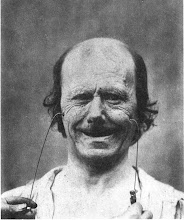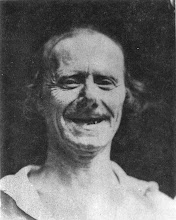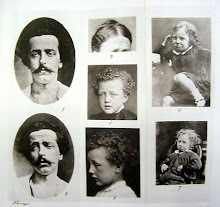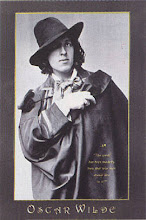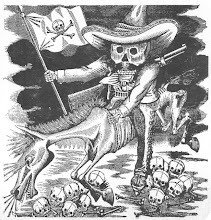
The first exposure I had to the determinism-free will discussion was in elementary school when we attended the Calvary Baptist Church in McAllen, Texas. The argument was if God knows everything and is all-powerful, he knows ahead of time what we will do and he made us that way, so we can't really be making choices. Differently put, no one really chooses the next step in life if it has already been decided by an omnipotent, omniscient God.
As a little boy, intuitively, I thought I was making choices, but I also had a strong sense I was being tossed around by powers far greater than me.
Although Baptists tend to believe in Free Will, there has long been a Calvinist contingent among the Baptists:
"...the earliest Baptists were not Calvinists, even though they had their beginnings in a Calvinistic environment. It was a quarter of a century before Calvinist views appeared in Baptist life. Even then, for a considerable period of time there were two different groups of Baptists in England, General Baptists (non-Calvinistic) and Particular Baptists (Calvinistic). Later (1891) the two groups merged, but many congregations on both sides were suspicious of the merger and remained separate. In America, the first Baptist church (FBC of Providence, Rhode Island) had both Calvinists and non-Calvinists in its membership."
The big issue is whether God picked those who were going to hell and those going to heaven before birth.
We are long since Catholic converts, but that does not really resolve the issue, even though the Catechism now state,
"Man is rational and therefore like God; he is created with free will and is master over his acts."
The anti-Calvinist protestants accuse Calvin of having cribbed from the Catholic St. Augustine for a reliance on determinism. And The New Advent Catholic Encyclopedia (cited in the link) discusses the issue as far from settled. I discussed Pascal's falling out of favor with the powers of his day because of a Catholic belief in determinism.
Mostly now, people talk about biological and psychological determinism, but I think it is largely the same discussion as God's determinism.
My first exposure to this type of determinism was when I read Walden Two by B.F. Skinner when I was still in High School. I kept the intuition that I was making free choices, but I could not find an strong argument against Skinner's determinism.
In the decades since, I have seen little evidence that people have choice in life. At most, we have an illusion that we are making a choice, but that choice is determined by prior causes. Recently, I read Living Without Free Will by Derk Pereboom. He makes the case for "Hard Determinism" and "Hard Incompatibilism." That is, factors beyond our control produce all of our actions and this fact is incompatible with a belief we are praiseworthy or blameworthy for our actions.
If this is true (and Pereboom argues it as scientific fact), the implications for life and society are huge. For starters, it demonstrates our criminal justice system is based on a false premise.







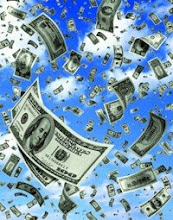
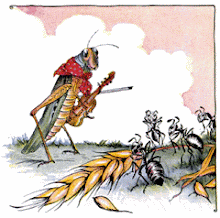













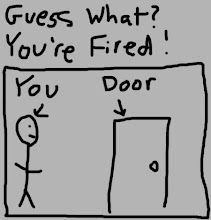










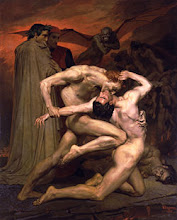_-_Dante_And_Virgil_In_Hell_(1850).jpg)















